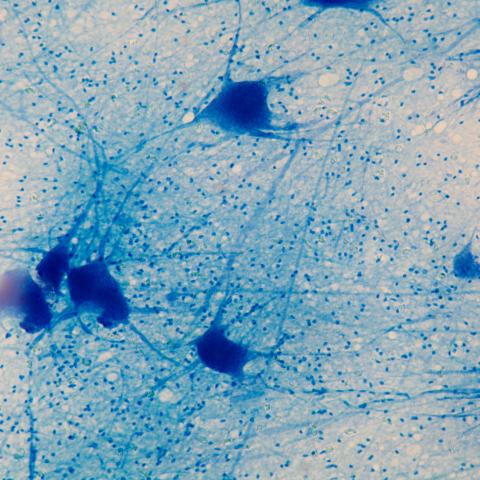
Brain cells under a microscope. Image credit: iStock.
In October 2023, the U.S. Food and Drug Administration (FDA) granted orphan drug status to LMP400 (indotecan) for use in patients with malignant glioma, a cancer of the brain that begins in glial cells (cells that surround and support nerve cells).
This designation is based on results from a study led by Jing Wu, M.D., Ph.D., Lasker Clinical Research Scholar in the Neuro-Oncology Branch. LMP400 was discovered by coauthor Yves Pommier, M.D., Ph.D., Chief of the Developmental Therapeutics Branch, in 2007 and is known as a topoisomerase I inhibitor — a drug that interrupts cell division and causes DNA damage. When combined with Niraparib, the other drug in the study, cells cannot repair the DNA damage, eventually leading to cell death.
Orphan drug designation is given to therapies that treat, prevent or diagnose rare diseases. Although this designation does not necessarily mean that the treatment will be approved by the FDA or reach patients faster, it enables the drug’s developers to receive incentives such as tax credits. It also provides them exclusive rights for seven years to further the treatment’s potential for that condition.
Wu’s team is now working with Pommier to open a clinical trial concept to further study the use of LMP400.